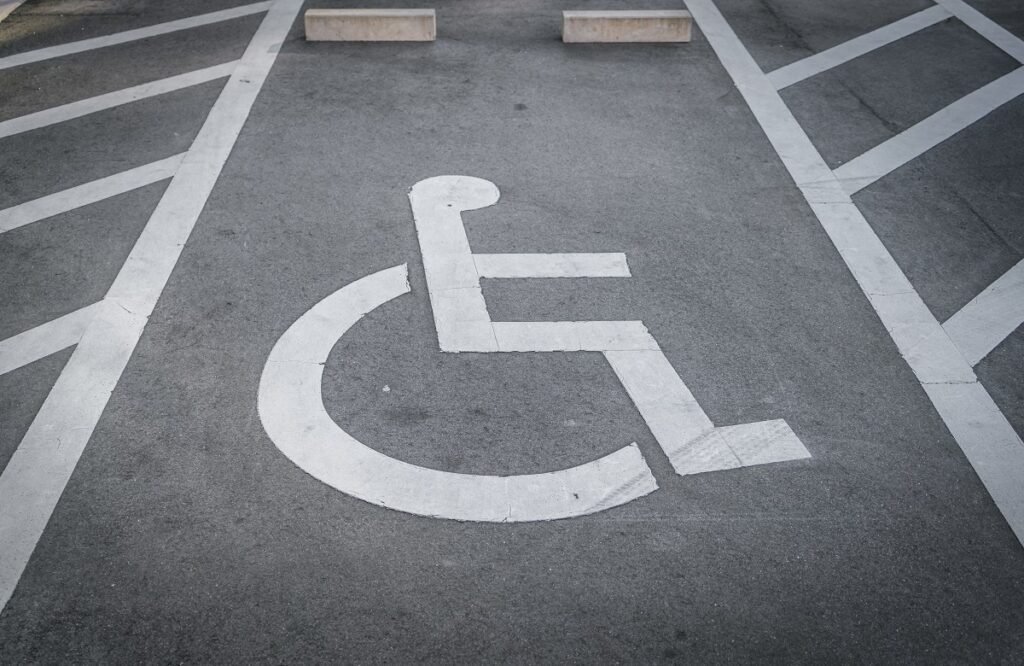Having access to handicap parking is crucial for many people with disabilities. It gives them the ability park closer to where they need to go, whether that be school, work, or out in public places. For many people with disabilities, the ability to park just a little bit closer to their destinations makes a world of difference.
When it comes to getting a handicap parking permit, there is a particular process to go through. To get a handicap parking permit in the state of Florida, there are specific requirements and processes that need to be completed prior to an application being accepted.
How do I get a disabled parking permit in Florida?
The first step to getting a disabled parking permit in Florida is having a qualifying condition that you seek treatment for. Your doctor will likely be aware of your condition prior to your request to get a parking permit. There are certain requirements that you need to meet in Florida to be able to get a handicap parking pass, including:
- Your mobility being disabled due to an arthritic neurological or orthopedic conditions
- You cannot walk for 200 feet without having to take a break
- For those with lung diseases, your exploratory volume is less than one liter or your arterial oxygen tension has to be less than 60mm/hg while you are at rest
- You require the permanent use of a wheelchair
- You are legally blind

If your disability is severe, unfortunately you may not qualify for a Florida license, but you can still qualify for a parking permit if a person or organization that transports you around applies for one.
When you have your documentation, applying through the Disabled Parking site is a quick and reliable way to get your handicap placard.
How do I renew my disabled parking permit in Florida?
There are two types of disabled parking permits you can get in Florida: a temporary placard or plates and a permanent placard or plates. Those with temporary disabilities, such as a broken leg, will only qualify to get a temporary placard, while those with more permanent disabilities such as arthritis will qualify for a permanent placard. The renewal time for a placard held by a disabled person or an organization that helps to transport someone around is the same: four years.
You will want to renew your disabled parking permit before the expiration date listed on the placard. To do so, you will have to send a copy of your parking permit registration and the Application for Disabled Person Parking Permit to the local County Tax Collector’s Office or License Plate Agency.
Can you use an out-of-state handicap placard in Florida?
Those coming from out of state to visit Florida will often want to use their own vehicle to get around in the state. This is especially true for someone with a disability, because chances are their vehicle has been modified to suit their needs. When it comes to using your out-of-state handicap placard in Florida, the laws state that you can. If you are coming from a different country and your placard does not have an international symbols of accessibility, you will have to apply for a Florida temporary disabled parking permit.

How do I ask my doctor for handicap parking?
The first thing you should do when approaching your doctor for a handicap parking permit is know what conditions qualify in Florida. Conditions that qualify a person for a handicap parking for card in this state include heart conditions, lung disease, neurological or orthopedic conditions, poor eyesight, arthritis, the use of a wheelchair, the need for crutches or a cane, or the inability to walk 200 feet without needing to take a break.
If any of your health issues qualify, you should approach your doctor and ask them to help you fill out the forms. Since your physician is likely well versed with your symptoms and condition, they should be able to help you fill out the forms with no problems at all. It’s important to bring up the request as early as possible in the appointment to gives the doctor enough time to assess your condition and symptoms as well as fill out all the appropriate forms.
Featured image by Jannoon028 on Freepik
